APPAM Policy Council and Leadership Election
The Policy Council is APPAM's governing board and is responsible for setting policy and creating strategy for the Association. It currently consists of four elected cohorts serving staggered, four-year terms of office. The APPAM officers (ex officio voting); the APPAM Executive Director and the Editor of JPAM (ex-officio non-voting) comprise the Executive Committee; the Executive Committee is also part of the Policy Council.
Elections for the new four person cohort on the Policy Council, a Vice President and a Treasurer begins on December 15th. The election will run until midnight Eastern Time on January 14th.
The election is now closed and results are being tallied. Thank you to our nominees and those that participated in this year's election. Winners will be posted soon.
Among the four person cohort for the Policy Council, one is a self-identified practitioner, one is an institutional representative selected by the Committee of Institutional Representatives and two are academics, one of whom is an early career academic. Early career academics are defined as being within 10 years receipt of their terminal degree. All will serve four-year terms.
Finally, one student is appointed annually to serve a two-year term on the Policy Council. There are two student seats on the Board and one new student is selected for service each year. They are appointed by the APPAM President, Carolyn Heinrich, and the Chair of the Institutional Representatives, Juliet Musso. We are accepting nominations for this position until December 31st. Click here for more information on the nomination process.
You can view a list of the current APPAM Officers, descriptions of each officer position, and the current APPAM Policy Council Members.
Bylaws Change
As per the Strategic Plan, APPAM has developed a process to modify the Bylaws that relates to elections for executive positions and Policy Council members such that the current distinction between academics and practitioners is changed to a distinction between people working in academic settings and people working in other settings. Please refer to these proposed bylaw changes which will be included on the December 15th ballot. These proposed changes would affect the APPAM Bylaws clauses under Article IV, Policy Council, Section 5a.
How to Vote
Voting for the next Policy Council cohort, which serves from 2017 through 2020, and for Vice President and Treasurer, which serve from 2017 through 2018, begins December 15th. The election will conclude at midnight, Eastern Standard Time, on January 14, 2017.
Follow the links below to the list of all nominees on this year's ballot. All current members will receive email instructions on how to vote on December 15th and will receive periodic reminders to vote until the January 14th deadline. If your membership has lapsed, you will not receive an e-mail with voting instructions. If you want to check the status of your membership, you can do so here. If you have not received an e-mail and feel that your membership is current, please contact Tara Sheehan.
Click on the links below to go to the section of the page with the particular set of nominees. Or just scroll down to read all the statements.
Leadership Nominees
The following is a list of nominees for APPAM's Officer Positions of Vice President and Treasurer. Please note that President-Elect David Johnson was appointed to the position of President-Elect by the APPAM Nominating Committee and voted by acclamation at the 2016 Fall Research Conference Membership Meeting. His statement is being presented for transparency and completeness and he is included in the ballot, although he was already appointed.
President-Elect Nominee (Uncontested; serves a 1-year term, automatically becomes APPAM President after the 2017 Fall Conference)
David Johnson, University of Michigan

I am honored and excited to be given this opportunity to serve as President-Elect of APPAM. I can remember my first APPAM conference almost 20 years ago (1998 in NYC), presenting on the recently released NAS report on Poverty Measurement. I didn’t know then where my career would lead me. I do know that my involvement in APPAM through the years has provided me with many opportunities, and, most of all, has given me so many great colleagues and friendships. For the past decade, I have served on the Policy Council, served as Vice-President, and co-chaired the effort to update the APPAM strategic plan. My goals over the next two years – first as President-Elect and then as President – are guided by the strategic plan - to promote the profession of public policy analysis and management, increase the interaction of researchers, government officials and policy makers, and expand the diversity of the APPAM membership.
My first task is to organize the 2017 Fall Research Conference. The conference will be held in Chicago, celebrating the host of the first APPAM conference in 1979. Given my 25 years in the Federal Statistical System, the theme of conference will focus the importance of measurement and data. Federal, state and local governments all work to provide better data and indicators to measure how economic and social policy are working. It is more essential than ever to demonstrate the importance of the current government data, suggest improvements, and search for new data. As we all know, better data lead to better research, better public policy analysis and management, and better decisions.
As I take on this new role, I encourage all of you -- even challenge you -- to expand your involvement in APPAM. Consider volunteering to serve on a committee, serve as a mentor, attend a forum or student conference, or talk to new people at the Fall conference. And most of all, vote for the new members of the Policy Council and Council Leadership. Thanks to all of you for your commitment to APPAM. I look forward to working with you during these next two years.
Vice President Nominees (1 is elected for a 2-year term; there are two Vice Presidents on APPAM's Executive Committee and Policy Council, serving staggered terms)
Raphael Bostic, University of Southern California
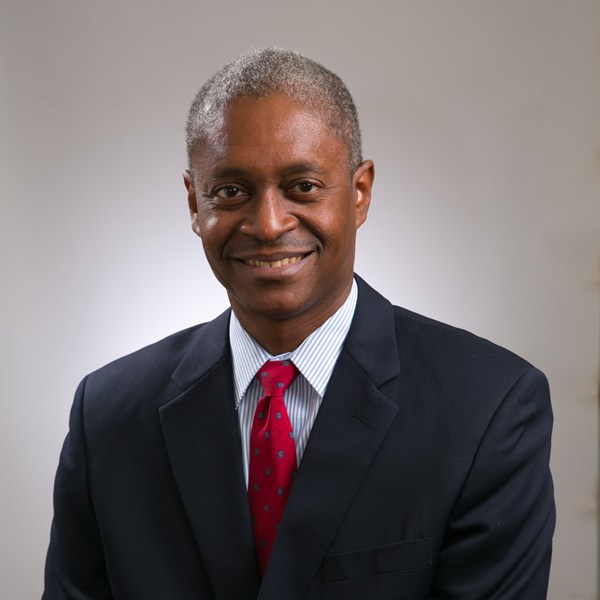
I am grateful for your consideration of my candidacy for Vice President of APPAM. My research interests broadly focus on housing policy and economic development, with a particular emphasis on variation in access to opportunity (1) across space and (2) across households grouped by race, educational achievement, and income, among other demographic categories. Moreover, I have actively sought to translate my research and the research of others into active policy by engaging practitioners and through direct public service as a federal appointee. Finally, I have also consistently served our broader community. I was previously elected to be a board member for APPAM, served as USC’s institutional representative for a short time, and have worked on the annual conference committee, both as a contributing member and as an area lead (housing and community development). I believe that my background mirrors an APPAM guiding principle of bridging the academic and practitioner worlds with the goal of promoting evidence-based policy solutions to society’s problems. Indeed, my career trajectory has been shaped by the APPAM community in important ways, and I feel a tremendous gratitude for the colleagues and collaborators that I have gained through the organization. It would be my privilege to have an opportunity to give back through this leadership role. If elected to this position, I would work hard to ensure that APPAM builds upon its legacy of promoting high quality research, connecting scholarship with the practice, and nurturing young scholars seeking to establish a career pathway to become ever more impactful in the policy space.
Laura Peck, Abt Associates
 APPAM is the most important professional forum in my career. The substantive and methodological discussions at the conference are top notch, as is our journal, JPAM. They invigorate my research and keep me coming back for more. This year marks my 21st year as a member, and was my 20th Fall Conference. Over the years, I have served on APPAM’s Program Committee, building new program areas (gender) and enriching established ones (methods). As an Institutional Representative (for Arizona State University and now Abt Associates), I have focused on encouraging balance between academic scholarship and policy practice. On the Policy Council (elected 2012 in a “practitioner” role), I have been a member of the policy relevance and international committees and served as chair of the membership committee. I eagerly say “yes” to other APPAM duties because of my belief in the organization and its mission: mentoring doctoral students, providing opportunities for first-time conference attendees, judging poster sessions, evaluating fellowship applications, reviewing student conference proposals, facilitating institutional member forums, etc. I hope my demonstrated commitment to APPAM and its mission—to improve public policy and management by fostering excellence in research, analysis and education—will compel my fellow members to support my election to APPAM Vice President. I am eager to continue serving APPAM and its mission to ensure success in our collective future.
APPAM is the most important professional forum in my career. The substantive and methodological discussions at the conference are top notch, as is our journal, JPAM. They invigorate my research and keep me coming back for more. This year marks my 21st year as a member, and was my 20th Fall Conference. Over the years, I have served on APPAM’s Program Committee, building new program areas (gender) and enriching established ones (methods). As an Institutional Representative (for Arizona State University and now Abt Associates), I have focused on encouraging balance between academic scholarship and policy practice. On the Policy Council (elected 2012 in a “practitioner” role), I have been a member of the policy relevance and international committees and served as chair of the membership committee. I eagerly say “yes” to other APPAM duties because of my belief in the organization and its mission: mentoring doctoral students, providing opportunities for first-time conference attendees, judging poster sessions, evaluating fellowship applications, reviewing student conference proposals, facilitating institutional member forums, etc. I hope my demonstrated commitment to APPAM and its mission—to improve public policy and management by fostering excellence in research, analysis and education—will compel my fellow members to support my election to APPAM Vice President. I am eager to continue serving APPAM and its mission to ensure success in our collective future.
Treasurer (1 is elected for a 2-year term)
Scott Allard, University of Washington
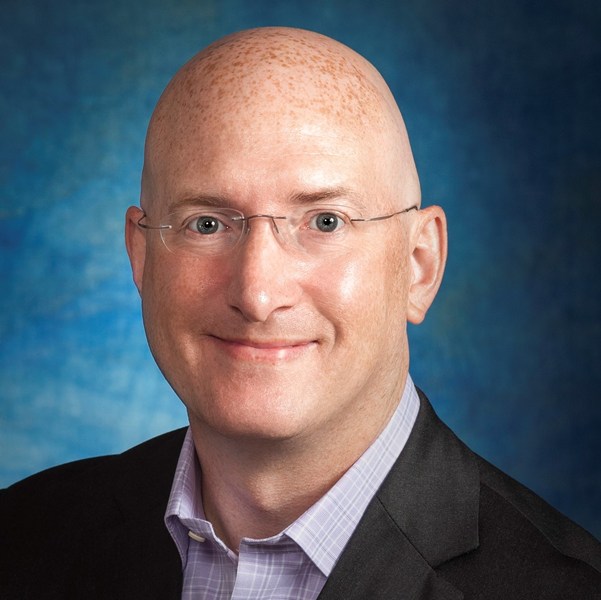 It is an honor to be nominated for the Treasurer position. My research primarily focuses on issues of place, poverty, and social welfare policy in the U.S. and involvement with APPAM has been central to my professional development. As an active member for 20 years, I am deeply committed to supporting the interdisciplinary research mission of the Association, the Journal of Policy Analysis and Management, and the APPAM Annual Fall Conference. I have served APPAM in a number of capacities over the years, highlighted by service on the 2011 APPAM Strategic Planning Committee and service as a member of the Policy Council from 2012 to 2015. Through this work, I have aided APPAM’s efforts to attract a new generation of scholars, strengthen the Annual Fall Conference, and find ways to improve APPAM’s connections to policymakers and practitioners. In addition, as a three-year chair of the Communications Committee, I supported APPAM’s efforts to improve its website, branding, and communication strategies. If elected as APPAM Treasurer, I will work with members and the policy council to implement the recently completed strategic plan and ensure continued fiscal health of the association. I also will work to advance APPAM’s ongoing mission to support scholars from underrepresented groups, to mentor graduate students, to engage in policy-relevant research, and to promote a diverse array of high-quality research methods.
It is an honor to be nominated for the Treasurer position. My research primarily focuses on issues of place, poverty, and social welfare policy in the U.S. and involvement with APPAM has been central to my professional development. As an active member for 20 years, I am deeply committed to supporting the interdisciplinary research mission of the Association, the Journal of Policy Analysis and Management, and the APPAM Annual Fall Conference. I have served APPAM in a number of capacities over the years, highlighted by service on the 2011 APPAM Strategic Planning Committee and service as a member of the Policy Council from 2012 to 2015. Through this work, I have aided APPAM’s efforts to attract a new generation of scholars, strengthen the Annual Fall Conference, and find ways to improve APPAM’s connections to policymakers and practitioners. In addition, as a three-year chair of the Communications Committee, I supported APPAM’s efforts to improve its website, branding, and communication strategies. If elected as APPAM Treasurer, I will work with members and the policy council to implement the recently completed strategic plan and ensure continued fiscal health of the association. I also will work to advance APPAM’s ongoing mission to support scholars from underrepresented groups, to mentor graduate students, to engage in policy-relevant research, and to promote a diverse array of high-quality research methods.
Mike Shires, Pepperdine University

I am honored to be considered for the position of Treasurer of APPAM. I am an Associate Dean and professor at the Pepperdine School of Public Policy. My research looks for ways to strengthen accountability and efficiency of finance and governance processes in state and local governments and examines ways to preserve educational and economic opportunity in disadvantaged communities. During my more than 24 years of APPAM involvement, I am proud of the essential role that the organization has played in building bridges between policy scholars, policy analysis, and policy makers. In that time, I have served as an institutional representative for 18 years representing two institutions and in a variety of leadership and committee roles within APPAM, including a stint as Chair of the Council of Institutional Representatives, a member of the APPAM Policy Council and Executive Committee, a member of several committees including the most recent revision of APPAM’s strategic plan. In each of these leadership roles, my focus has been to help APPAM play a leadership role in both defining and strengthening the profession and academic discipline of public policy, and to improve its ability to influence the making of public policy and policy decisions.
As APPAM’s Treasurer, I would endeavor to continue the success that APPAM has had in building a strong financial foundation on which to build its programs. Over the course of the next two years, APPAM will have many opportunities to leverage the investments and resources at its disposal. With my business and finance background (I have both an MBA in accounting and previous experience as a director of operations and an accountant in the private sector), I would be well-prepared to help APPAM work through the financial implications of the choices it will make. Additionally, I serve on the Board of the National Institute of Public Finance, a nonprofit affiliate of the National Association of State Treasurers which provides training to their staffs. Because of that role, I am deeply acquainted with requirements and financial best practices for nonprofit organizations.
Since I am a Ph.D. graduate of one APPAM school, a former research fellow at two member think tanks, and a professor at another member MPP-only school, I would bring many valuable perspectives to APPAM’s leadership. I see APPAM as a key resource to the global policy community to improve the quality of public policy choices through better participation, analysis, research and inclusiveness in its scholarship, outreach, and leadership and I would be honored to carry that passion and vision forward if elected to serve as its Treasurer.
Back to top of page.
Practitioner Nominees (1 is elected for a 4-year term)
Colin Chellman, City University of New York
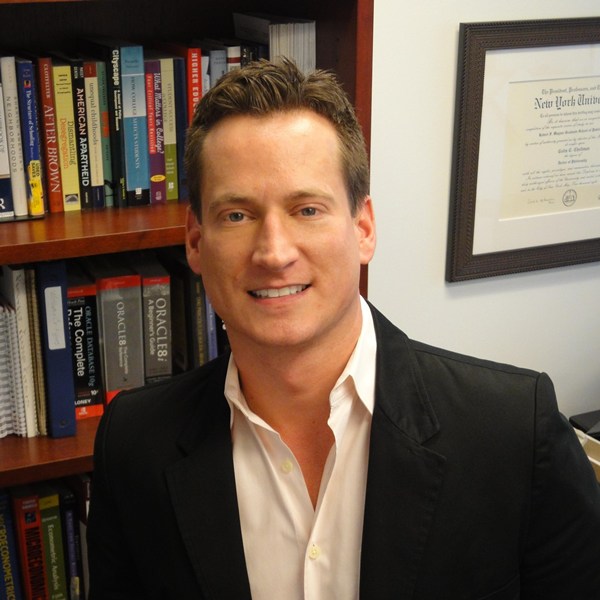 APPAM is a thriving organization that has helped me to grow as a policy professional. I welcome the opportunity to give back by serving on the Policy Council.
APPAM is a thriving organization that has helped me to grow as a policy professional. I welcome the opportunity to give back by serving on the Policy Council.
I have been a member of APPAM as a student, a young scholar, a policy director, and now as an associate dean managing internal research operations at the largest public, urban university system in the country, the City University of New York (CUNY). APPAM supported me as a student and new scholar, and if elected, one of my priorities will be mentoring and supporting young policy makers and scholars through programming and outreach during and in between conferences and events.
The mix of professionals and fields represented by APPAM gives the organization its strength, perspective, and visibility. Encouraging continued collaboration across these fields further solidifies APPAM’s preeminent position and leads to new avenues for solving social problems.
For the past three years, I was an elected member of the board of the Association for Education Finance and Policy (AEFP). I served on AEFP's program committee and chaired the outreach committee for two years during which time I spearheaded efforts to improve conference attendance by policy makers. To keep APPAM a thriving organization, I would continue to prioritize outreach to policymakers, expanding APPAM’s reach into underrepresented policy areas and disciplines.
In my work at CUNY, I successfully engage researchers and policy makers in ongoing cross-agency collaborations including with New York City’s Department of Education, Housing Authority, Administration for Children’s Services, and Human Resources Administration. Each of these partnerships has resulted in the generation of new knowledge and policy strategies to solve problems that impact the same city residents served by multiple agencies. I would bring this cross-field experience to doing outreach for APPAM. I hope you choose to give me the opportunity.
Jill Constantine, Mathematica Policy Research
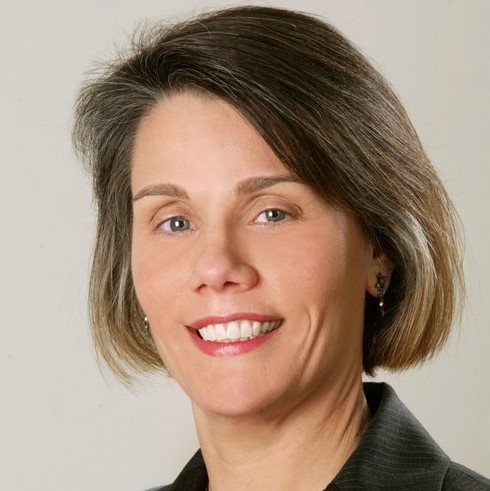
I am honored to be nominated for the APPAM Policy Council at time when the need to expand the use of evidence in policymaking and program management is so critical. I attended my first APPAM conference in the fall of 1993, as one of the first group of new PhDs to participate in the APPAM job market. I have been a member of APPAM for the past 15 years and am currently an Institutional Representative from Mathematica Policy Research. I have enjoyed working with the other representatives to provide input to more closely connect APPAM to decision-makers, as well as working to connect APPAM with foundations who are interested in increasing diversity and inclusion among policy researchers.
I have been at Mathematica for 15 years and am currently a vice president. Before that, I was a professor in the Economics department at Williams College. My research has been primarily in education, focusing on college access and completion for minorities (my earliest publications examined the effect of Historically Black Colleges and Universities on labor market outcomes of African American students.), More recently, my work has focused on training and supporting effective teachers. At Mathematica, I led a number of large evaluations of teacher preparation programs as well as the Teacher Incentive Fund. Over the last 10 years, my work has focused on directly supporting state and local educators to use evidence to inform their decisions. I have had the pleasure of working with staff at the U.S. Department of Education and other partners to develop and expand the What Works Clearinghouse, which provides information on hundreds of policies, programs, and curricula for education decision-makers. In addition, the What Works Clearinghouse standards for evidence have been embraced by the Office of Management and Budget, and used in many evidence-based funding initiatives.
State and local decision-makers stand at a precipice, uncertain about major policy shifts in health care, trade, education, and employment. For example, federal education policy as dictated by the Every Student Succeeds Act places all decision-making in the hands of state and local education agencies, but imposes significant requirements on them for using evidence to make those decisions. As federal support potentially declines and funding of important programs devolve to states, the need for evidence becomes even more urgent. The sophistication and availability of administrative data to inform program improvement and evaluation has expanded across all policy areas. APPAM has been forward thinking in supporting efforts by researchers and practioners to understand and utilize the power of “big data” for making better decisions. If elected to the APPAM Policy Council, I will work to apply what I have learned in my research and from all of you, to bring us all closer to decision-makers across the country.
Molly Irwin, US Department of Labor
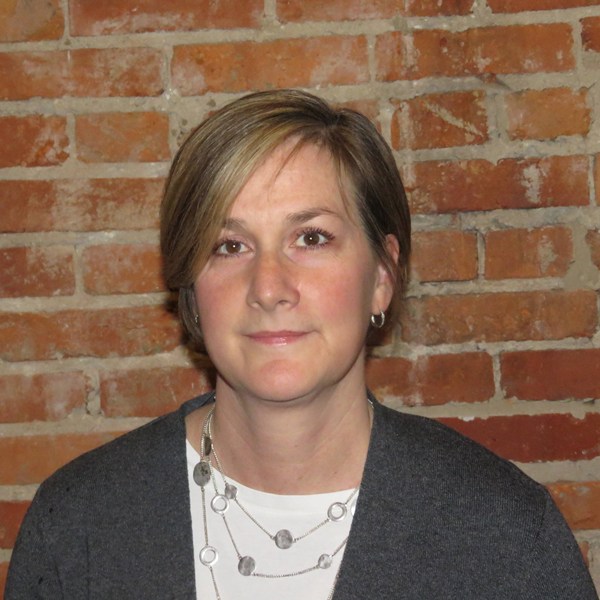 I am honored to be nominated as a candidate for the policy council. As the newly appointed Chief Evaluation Officer for the U.S. Department of Labor, I’m responsible for overseeing the Department's evaluation agenda and working with DOL agencies and external research partners to design and implement evaluations. This new role builds on more than 20 years of experience planning, leading, and conducting large-scale research and evaluation projects and working with policy makers, researchers, and practitioners to build and use evidence with the goal of improving public programs. The majority of my career has been at the intersection of research, policy and practice. I have been in Federal government for the last seven years in two of the premier Federal evaluation offices -- DOL’s Chief Evaluation Office and the Office of Planning Research and Evaluation in HHS’s Administration for Children and Families -- overseeing applied public policy research. Prior to coming to the Federal government, I led research projects and program initiatives from positions in local and state government, the private sector, and academia. I have a Ph.D. in Social Welfare from the Mandel School of Applied Social Sciences at Case Western Reserve University and a Master’s degree in Public Health from the University of Alabama at Birmingham. I have been an active member of APPAM for the last 10 years. If elected to the policy council, I will continue to work to build bridges between research and policy to advance APPAM’s mission of improving public policy and management by fostering excellence in research, analysis, and education.
I am honored to be nominated as a candidate for the policy council. As the newly appointed Chief Evaluation Officer for the U.S. Department of Labor, I’m responsible for overseeing the Department's evaluation agenda and working with DOL agencies and external research partners to design and implement evaluations. This new role builds on more than 20 years of experience planning, leading, and conducting large-scale research and evaluation projects and working with policy makers, researchers, and practitioners to build and use evidence with the goal of improving public programs. The majority of my career has been at the intersection of research, policy and practice. I have been in Federal government for the last seven years in two of the premier Federal evaluation offices -- DOL’s Chief Evaluation Office and the Office of Planning Research and Evaluation in HHS’s Administration for Children and Families -- overseeing applied public policy research. Prior to coming to the Federal government, I led research projects and program initiatives from positions in local and state government, the private sector, and academia. I have a Ph.D. in Social Welfare from the Mandel School of Applied Social Sciences at Case Western Reserve University and a Master’s degree in Public Health from the University of Alabama at Birmingham. I have been an active member of APPAM for the last 10 years. If elected to the policy council, I will continue to work to build bridges between research and policy to advance APPAM’s mission of improving public policy and management by fostering excellence in research, analysis, and education.
Laura Tiehen, US Department of Agriculture
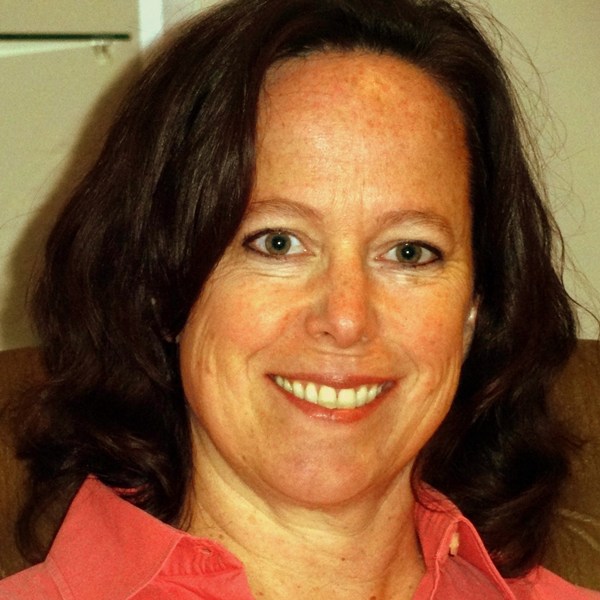
I would be thrilled to help provide strategic oversight and leadership to APPAM as a practitioner member of the Policy Council. I consider APPAM to be my primary professional organization and I appreciate its emphasis on high-quality, policy-relevant interdisciplinary research. I have been an active member of APPAM for over 15 years, as a conference panel organizer, presenter, discussant, and reviewer.
My research examines the use of federal food assistance programs and nonprofit food assistance, and the outcomes, such as poverty, food security, and health-related behavior, associated with their use. My work has been published in peer-reviewed economic, policy, and health journals. As a senior researcher with the federal government, I am in a unique position to conduct research and relay evidence to inform policy decisions. This includes publishing USDA reports and non-technical research summaries, and providing briefings to high-level policy officials, including the Secretary of Agriculture. I have collaborated with the World Bank to advise government officials in low- and middle-income countries in their efforts to reform their food assistance programs. I have also served as a Mentor on USDA’s 1890 Scholar Program, designed to increase the diversity of students studying food and agricultural sciences. I served for 10 years on the board of a nonprofit senior center in Washington, DC.
As a member of the Policy Council, I would welcome the opportunity to further strengthen APPAM’s commitment to increase the connections between researchers, policymakers, and practitioners, both in the U.S. and in other countries. I would also appreciate the chance to become involved in efforts aimed at increasing the diversity of APPAM’s membership.
Back to top of page.
Academic Nominees (1 Academic and 1 Early Career Academic are elected for 4-year terms)
Academics (One will be elected)
Dylan Conger, George Washington University
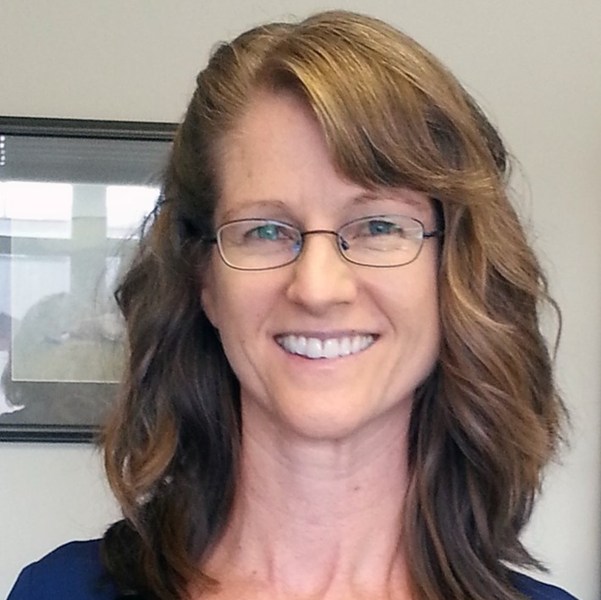
I am excited about the possibility of giving back to the APPAM community by serving on the Policy Council. APPAM has been my professional home through my nearly two-decade career in applied research and academia. I am a Professor of Public Policy and Public Administration at George Washington University, where I study the effect of education policies on vulnerable populations and work with terrific colleagues and students on enhancing connections among research, practice, and policy. I look forward to the Fall Conference every year where I often attend sessions that are outside of my area of expertise to learn from my colleagues in other policy areas. I have been fortunate to serve on the program committee of the Fall Conference for the last 6 years, the International Conference in 2016, and to mentor graduate students and junior scholars in public policy and administration. I have also enjoyed serving on the committee that selects the winners of the best papers published in JPAM and as a Managing Editor of JPAM, where I continue to learn about the diverse topics and scientific approaches undertaken by the APPAM research community.
If elected to the Policy Council, I look forward to working with the APPAM leadership and members to continue to advance the important goals outlined in the 2011 and 2015 Strategic Plans. In particular, I am enthusiastic about APPAM’s initiatives aimed at directly increasing the relevance of our research to policymakers and practitioners at all levels of government. I am also strongly committed to increasing our relevance through membership diversity on racial/ethnic backgrounds, research disciplines, policy areas, and methodological approaches.
Christian Weller, University of Massachusetts, Boston
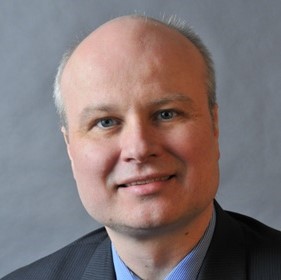
It is an honor to be nominated as a candidate for APPAM’s Policy Council. I greatly value APPAM’s work in the research, policy and management communities. And, I have actively participated in the association for close to two decades by organizing sessions for the fall research conference, publishing in the Journal of Public Policy Analysis and Management and reviewing manuscripts for the journal.
The real value of APPAM, in my view, comes from its emphasis on high quality research that is useful to practitioners. That is also where I believe I can make the most meaningful contributions to the association. My own career for the past two decades has bridged academic research and more applied policy development. For instance, I am currently a professor of public policy at the University of Massachusetts as well as a part-time senior fellow at the Center for American Progress. I am also affiliated with a number of other academic research organizations and Washington-based think tanks.
With my own research, I seek to understand how public policy could reduce persistent wealth inequality. My primary research interests focus on retirement income security, wealth inequality and economic policy as I hold a PhD in economics from the University of Massachusetts, Amherst. In recent years, I have been studying the role that increasing risk exposure in financial markets, in labor markets and through caregiving plays in shaping household wealth and retirement preparedness. I am particularly interested in the unequal distribution of risk exposures and the connection to wealth inequality by race/ethnicity and gender. If elected to the Policy Council, I would want to build on my own experience in academia and think tanks to make the connection between researchers and practitioners stronger.
Early Career Academics (One will be elected. Early career academics are defined as being within 10 years of the receipt of their terminal degree.)
Sanya Carley, Indiana University, School of Public and Environmental Affairs (SPEA)
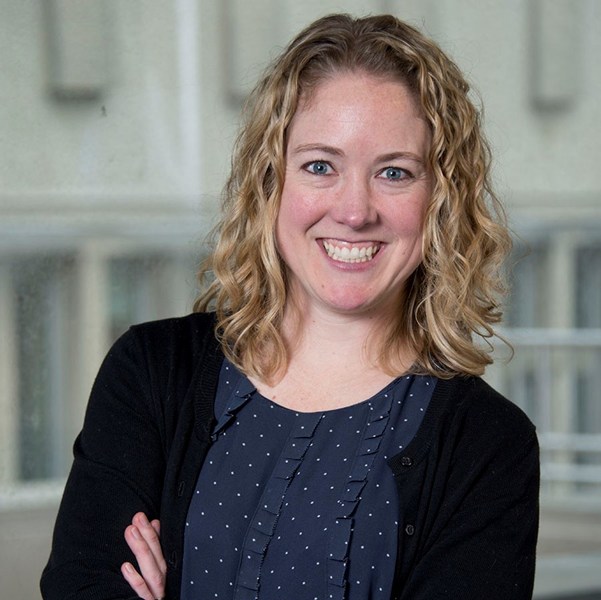
It is an honor to be considered as a candidate for the APPAM policy council. I am an Associate Professor and the Chair of the Policy Analysis and Public Finance faculty in the School of Public and Environmental Affairs, Indiana University. I research how public policy affects electricity and transportation markets, in both intended and unintended ways. As a statistical and modeling consultant before I began my career in academia, I worked with organizations such as the World Bank, the Environmental Protection Agency, and RTI International. My research and prior consulting work is highly interdisciplinary and requires that I engage regularly with policymakers, scholars, and industry. This interdisciplinary and collaborative professional approach aligns well with APPAM’s mission.
As I enter my tenth year as an APPAM member, I am especially eager to commit more actively to the Association. I have served on the conference program committee for the Natural Resource Security, Energy, and Environmental Policy track four times, two of which as the chair. Over this time, I have worked actively to recruit new environment and energy professionals to the Association; continually improve the quality of the environment and energy track by composing panels on important and hot research topics; and serve the Association by judging poster sessions and participating in mentoring activities. I have also gained experience in association leadership, through the positions of Presidential Advisor, General Council, and Treasurer-Secretary for the United States Association for Energy Economics.
If elected to policy council, I would enjoy developing approaches to facilitate the combination of tracks to address important policy priorities, for example at the intersection between energy policy and public health, or environmental policy and social policy. I would also like to work with council to attract more industry representatives to the Association and the annual conference.
Jorge de la Roca, University of Southern California
 I am honored to be a nominee for one of the Early Career Academic positions on the APPAM Policy Council. I am an Assistant Professor at the USC Sol Price School of Public of Policy, a native from Lima, Peru, with a PhD in Economics from CEMFI, Spain, and a Postdoc at the NYU Furman Center for Real Estate and Urban Policy. My research interests include urban economics, labor economics and real estate. As an economist specializing in urban issues, I study the learning advantages of big cities for workers, the drivers of urban migration patterns among individuals with different levels of skills, as well as the negative consequences of metropolitan area segregation on minorities, and particularly on Latinos. My research has been published in top general-interest economics journals such as The Review of Economic Studies, top-field journals such as Regional Science and Urban Economics and interdisciplinary journals such as The Annals of the American Academy of Political and Social Science. Throughout my career, I have worked to build relationships with the Urban Economics Association (UEA), the North American Regional Science Council (NARSC), the American Real Estate and Urban Economics Association (AREUEA) and researchers in Latin American countries, and hope to bring these networks to contribute to the diversity of the Association as well as the international exposure of APPAM. As an economist that works with urban planners and researchers from other fields interested in spatial issues, I am committed to promoting high-quality and policy-relevant multidisciplinary research, and would like to help the Association continue to advance these goals.
I am honored to be a nominee for one of the Early Career Academic positions on the APPAM Policy Council. I am an Assistant Professor at the USC Sol Price School of Public of Policy, a native from Lima, Peru, with a PhD in Economics from CEMFI, Spain, and a Postdoc at the NYU Furman Center for Real Estate and Urban Policy. My research interests include urban economics, labor economics and real estate. As an economist specializing in urban issues, I study the learning advantages of big cities for workers, the drivers of urban migration patterns among individuals with different levels of skills, as well as the negative consequences of metropolitan area segregation on minorities, and particularly on Latinos. My research has been published in top general-interest economics journals such as The Review of Economic Studies, top-field journals such as Regional Science and Urban Economics and interdisciplinary journals such as The Annals of the American Academy of Political and Social Science. Throughout my career, I have worked to build relationships with the Urban Economics Association (UEA), the North American Regional Science Council (NARSC), the American Real Estate and Urban Economics Association (AREUEA) and researchers in Latin American countries, and hope to bring these networks to contribute to the diversity of the Association as well as the international exposure of APPAM. As an economist that works with urban planners and researchers from other fields interested in spatial issues, I am committed to promoting high-quality and policy-relevant multidisciplinary research, and would like to help the Association continue to advance these goals.
Keshia Pollack, Johns Hopkins University
 As director of the Johns Hopkins Bloomberg School of Public Health (JHSPH) Institute for Health and Social Policy (IHSP), I am honored and humbled to be nominated as a candidate for the APPAM policy council. IHSP advances research, training, and practice that examines how public and social policies impact health determinants, health outcomes, and equity. I became director of IHSP in March 2016, and have since built on the strong relationship that our University has had with APPAM for several decades. As an institutional member, we are committed to ensuring that students in our various policy programs, especially the MPP, are connected to this leading professional organization, and able to be involved with various initiatives, such as the DC Regional Student Conference, which we are co-sponsoring. Johns Hopkins University is the only institution with an MPP located in a School of Public Health, and this unique position affords me a valuable perspectives on the future of public policy and its importance for influencing social determinants of health and equity. I am an Associate Professor of Health Policy and Management at JHSPH, and my expertise is in advancing policies that create safe and healthy environments where people live, work, play, and travel. My research uses tools such as injury epidemiology, health impact assessment, translational research, and strategies that advance health in all policies. My work also includes direct interactions with policymakers and other key decision-makers to promote the development and implementation of evidence-informed policies. I completed my PhD in 2006, and throughout my career I have held various leadership position in professional organizations, including serving on and co-leading committees related to governance. My desire to be part of the APPAM policy council stems from my desire to help inform future policy and strategy for the association. I have a strong commitment to whatever leadership activates that I take on, and if elected to the council, I will faithfully serve my 4-term, with my typical commitment to collaboration, openness to various perspectives, and passion for impact. If elected to the policy council, I promise to bring my perspectives on health, equity, and policy to help inform tactical and strategic directions for the organization. I hope that you support my nomination and elect me from the slate of Early Career Academics to serve on the policy council.
As director of the Johns Hopkins Bloomberg School of Public Health (JHSPH) Institute for Health and Social Policy (IHSP), I am honored and humbled to be nominated as a candidate for the APPAM policy council. IHSP advances research, training, and practice that examines how public and social policies impact health determinants, health outcomes, and equity. I became director of IHSP in March 2016, and have since built on the strong relationship that our University has had with APPAM for several decades. As an institutional member, we are committed to ensuring that students in our various policy programs, especially the MPP, are connected to this leading professional organization, and able to be involved with various initiatives, such as the DC Regional Student Conference, which we are co-sponsoring. Johns Hopkins University is the only institution with an MPP located in a School of Public Health, and this unique position affords me a valuable perspectives on the future of public policy and its importance for influencing social determinants of health and equity. I am an Associate Professor of Health Policy and Management at JHSPH, and my expertise is in advancing policies that create safe and healthy environments where people live, work, play, and travel. My research uses tools such as injury epidemiology, health impact assessment, translational research, and strategies that advance health in all policies. My work also includes direct interactions with policymakers and other key decision-makers to promote the development and implementation of evidence-informed policies. I completed my PhD in 2006, and throughout my career I have held various leadership position in professional organizations, including serving on and co-leading committees related to governance. My desire to be part of the APPAM policy council stems from my desire to help inform future policy and strategy for the association. I have a strong commitment to whatever leadership activates that I take on, and if elected to the council, I will faithfully serve my 4-term, with my typical commitment to collaboration, openness to various perspectives, and passion for impact. If elected to the policy council, I promise to bring my perspectives on health, equity, and policy to help inform tactical and strategic directions for the organization. I hope that you support my nomination and elect me from the slate of Early Career Academics to serve on the policy council.
Matthew Springer, Vanderbilt University
 I am very excited about the possibility of serving on the APPAM Policy Council and contributing to the organization’s on-going success. I have been actively participating in APPAM’s fall research conference since 2004 as a session organizer, chair, discussant, and presenter, and served on the program planning committee in 2007. Like many of you, I very much consider APPAM my primary professional association home and greatly value the role APPAM plays in connecting the research, practice, and policy communities. As an assistant professor of public policy and education at Vanderbilt University, I focus on policies designed to reform the American education system, with an emphasis on performance-based incentives within two related yet discrete areas: compensation and accountability. My research has helped shape education reform efforts both within and outside the United States and continues to contribute to our theoretical and conceptual understanding of these efforts. In my career, I have also spent considerable time connecting research to practice and policymaking, as evidenced by my work in establishing and leading a federally-funded national research and development center (National Center on Performance Incentives) and a state-level research-practice partnership with the State of Tennessee (Tennessee Consortium on Research, Evaluation, and Development, now known as the Tennessee Education Research Alliance). APPAM and its members have been instrumental in my professional development as a researcher and educator, and I look forward to the possibility of giving back to this great organization and community.
I am very excited about the possibility of serving on the APPAM Policy Council and contributing to the organization’s on-going success. I have been actively participating in APPAM’s fall research conference since 2004 as a session organizer, chair, discussant, and presenter, and served on the program planning committee in 2007. Like many of you, I very much consider APPAM my primary professional association home and greatly value the role APPAM plays in connecting the research, practice, and policy communities. As an assistant professor of public policy and education at Vanderbilt University, I focus on policies designed to reform the American education system, with an emphasis on performance-based incentives within two related yet discrete areas: compensation and accountability. My research has helped shape education reform efforts both within and outside the United States and continues to contribute to our theoretical and conceptual understanding of these efforts. In my career, I have also spent considerable time connecting research to practice and policymaking, as evidenced by my work in establishing and leading a federally-funded national research and development center (National Center on Performance Incentives) and a state-level research-practice partnership with the State of Tennessee (Tennessee Consortium on Research, Evaluation, and Development, now known as the Tennessee Education Research Alliance). APPAM and its members have been instrumental in my professional development as a researcher and educator, and I look forward to the possibility of giving back to this great organization and community.
Back to top of page.
Institutional Member Representative (1 is elected for a 4-year term)
**Please note that only institutional members vote for the institutional member representative on the Policy Council.**
Heather Campbell, Claremont Graduate College
I am currently Professor and Chair in the Department of Politics and Government at the Claremont Graduate University, an APPAM Institutional Member. I would be pleased to serve the Institutional Members and APPAM as the representative of the Institutional Members to the Policy Council.
I believe strongly in the mission of APPAM. As a faculty member and administrator at Arizona State University, I motivated the Public Affairs program to become an APPAM Institutional Member. In my current position, I also quickly led the Claremont Graduate University to join APPAM as an Institutional Member. Thus, I clearly believe in the importance of APPAM for both large, state and small, private universities.
I have been an individual member of APPAM continuously since 1991; my PhD is in Public Policy Analysis (Carnegie Mellon), so APPAM and I share core interests. I have successfully served in various APPAM positions, including as an Institutional Representative, as the Vice-Chair of the Institutional Representatives, and on the Conference and Dissertation Award committees. In addition, I bring experience from serving as Editor of the Journal of Public Affairs Education, as well as various university administrative positions, such as Department Chair, Policy Field Chair, Graduate Director, Senator, Search Committee Chair, etc. I have the skills and interests to represent APPAM’s Institutional Members well before the Policy Council.
The Institutional Members are an important part of APPAM but, as noted at the last Institutional Representatives meeting, they often seem to be given insufficient attention in Policy Council considerations. If elected, my priority will be to bring Institutional Members more fully into APPAM Policy Council considerations. I will work with the Chair of the Institutional Members to keep Institutional Members better informed, and also to bring the concerns and interests of the Institutional Members more clearly before the Policy Council.
Back to top of page.